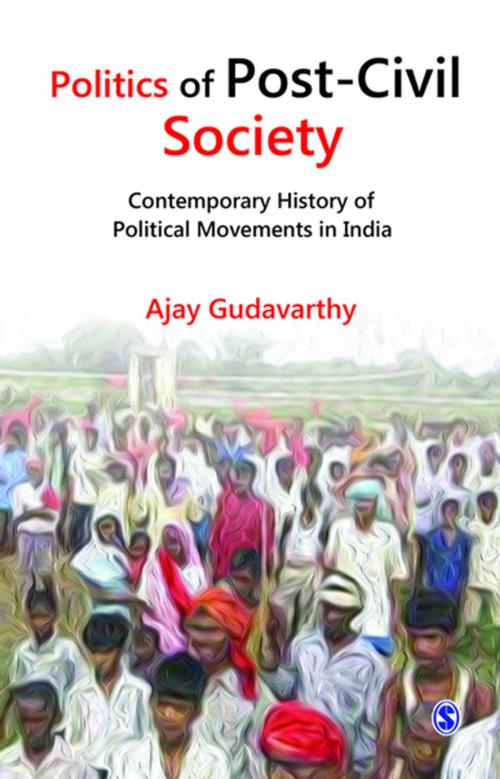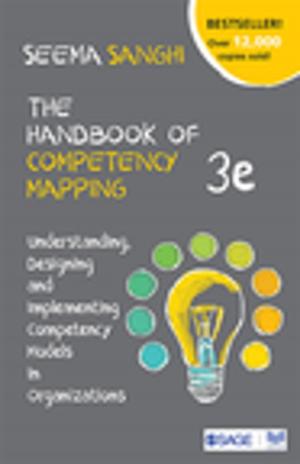Politics of Post-Civil Society
Contemporary History of Political Movements in India
Nonfiction, Social & Cultural Studies, Political Science| Author: | Ajay Gudavarthy | ISBN: | 9788132113836 |
| Publisher: | SAGE Publications | Publication: | January 24, 2013 |
| Imprint: | Sage Publications Pvt. Ltd | Language: | English |
| Author: | Ajay Gudavarthy |
| ISBN: | 9788132113836 |
| Publisher: | SAGE Publications |
| Publication: | January 24, 2013 |
| Imprint: | Sage Publications Pvt. Ltd |
| Language: | English |
Civil Society has emerged as one of the most celebrated concept of the twentieth and the twenty-first centuries. It offers practices that are the means and certain normative ideals that are the ends to be achieved for the preservation of democracy and expansion of the process of democratization. When available practices fail, reasons have been sought in the ideals being too lofty, and when the ideals looked minimalist, the blame has been shifted to the nature of practices being free-floating and bereft of definitive borders.
Politics of Post-Civil Society is an attempt to map the discourse and politics of contemporary political movements in India that have been negotiating with the hegemonic effects born out of the insidious co-habitation of political principles and practices in the domain referred to as the civil society. In course of constructing the political landscape of these movements, the book foregrounds the various strategies through which they are pushing and nudging towards a new politics of post-civil society.
Civil Society has emerged as one of the most celebrated concept of the twentieth and the twenty-first centuries. It offers practices that are the means and certain normative ideals that are the ends to be achieved for the preservation of democracy and expansion of the process of democratization. When available practices fail, reasons have been sought in the ideals being too lofty, and when the ideals looked minimalist, the blame has been shifted to the nature of practices being free-floating and bereft of definitive borders.
Politics of Post-Civil Society is an attempt to map the discourse and politics of contemporary political movements in India that have been negotiating with the hegemonic effects born out of the insidious co-habitation of political principles and practices in the domain referred to as the civil society. In course of constructing the political landscape of these movements, the book foregrounds the various strategies through which they are pushing and nudging towards a new politics of post-civil society.















